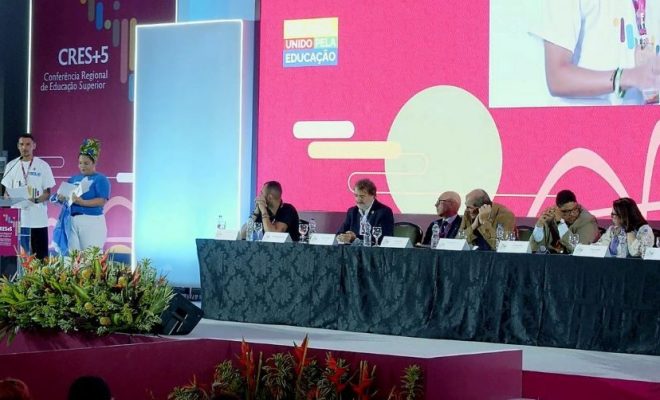New recognition convention boosts HE mobility, integration | #InThePress

The internationalisation and development of higher education in Latin America and the Caribbean have been boosted by the first meeting of UNESCO’s new regional convention on the recognition of studies and degrees, adopted by 23 countries. In terms of student mobility, only 0.8% of students in the region study abroad – against 2.6% globally.
Ratifying countries of the new instrument agreed at the meeting, held on 13-14 April in Uruguay, on a biennial plan and the creation of a regional network of national recognition structures plus an implementation guide to widely promote academic recognition.
The meeting stressed that the convention’s activation will help to guarantee the exercise of the right to higher education, facilitate the sector’s contribution to the United Nations Sustainable Development Goals (SDGs), and improve the futures of young migrants and refugees.
Its potential for positive impact on people’s lives is well illustrated by a decision to “design an online course for the rapid understanding of Venezuelan academic qualifications in view of the massive exodus of its population to neighbouring countries”.
So said Francesc Pedró, director of the UNESCO International Institute for Higher Education in Latin America and the Caribbean (IESALC), which hosts the secretariat of the New Regional Convention for the Recognition of Studies, Diplomas and Degrees in Higher Education in Latin America and the Caribbean (NCRALC).
“The most significant outcome of this first meeting was the adoption of the 2023-24 work plan, which will allow the standards and principles of the new convention to begin to be translated from the normative and axiological level into practice to ensure their effectiveness,” Pedró told University World News.
For instance, there will be a “feasibility study for the implementation of the Diploma Supplement; a guide for the implementation of the convention within the limits established by the national legislation of each of the ratifying states; a study to assess the feasibility of a regional framework for the recognition of micro-credentials”, and the Venezuelan initiative.
Pedró continued: “It was also agreed to create an articulated network of national information centres on academic recognition to support the implementation of the new convention, both in ratifying and signatory countries.”
Continue reading the full text published in University World News
Author
RELATED ITEMS








